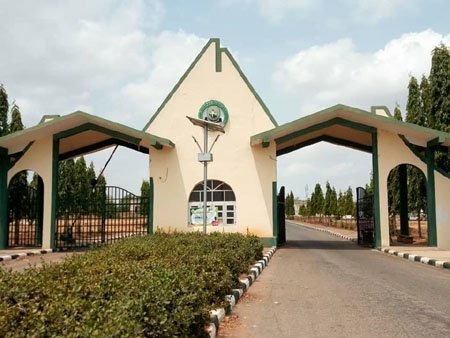Ibrahim Badamasi Babangida University, Lapai, has expanded her research portfolio into Green Energy with Niger, Kebbi, and Nassarrawa states for pilot schemes along with a current focus on hydrocarbon deposits in Nigeria’s inland frontier basins.
The university through an endowment fund of the Nigerian National Petroleum Company Ltd of the Professorial Chair in Basinal Studies endowed at the Institution was working on the Bida, Sokoto Basins, Benue Trough, the Anambra Basin, the Chad Basin, and the Dahomey Basin
The vice chancellor of the university, Professor Abu Kasim Adamu said at the research commencement workshop held in the Senate Chamber of the school, that the university is carefully aligning itself with the focus and mandates of its project sponsors, the NNPC Ltd, “ energy for today, energy for tomorrow.”
Adamu stressed that, although crude oil was gradually phasing out, it is still the energy for today and cannot be wished away, hence IBB University is committed to researching and finding more hydrocarbon habitats in Nigeria’s sedimentary basins.
The vice chancellor noted the world is in an era of energy transition and that tomorrow’s economy will be driven by green energies, made up mainly of renewable and alternative climate-friendly energy sources.
Also, the NNPC chair professor at the institution, Professor Nuhu George Obaje, who is also heading the Green Energy research project said that the world was in an era of energy transition as a measure to drastically reduce net carbon emission to create wealth and mitigate negative climate change impacts.
Professor Obaje said preliminary surveys by his team indicate significant quantities of green transition minerals in the geological terrains of Niger, Nasarawa, and Kebbi States. These green transition minerals include Lithium, Cobalt, Copper, Manganese, Nickel, Lead, Zinc, and Alkalis derivable from Feldspars, Micas, and Bauxites.
He maintained that these green transition minerals are the raw materials for the manufacture of batteries for Electric Vehicles (EVs), solar cells, and wind turbines that constitute the bulk of green energies.
Professor Obaje said geological mapping will be undertaken in the Kontagora – Nasko – Rijau areas of Niger State; Onda and Adudu-Ribi axis of Nasarawa State, Lafiagi-Pategi areas of Kwara State, and Darana area of Kebbi State.
He however stated that the results from the project are expected to make great new contributions to knowledge on critical energy minerals in the geological terrains of Nigeria, aligned to Sustainable Development Goals 1 (end poverty), 4 (quality education), 7 (clean and affordable energy) and 13 (climate action).
The Chair Professor Obaje said further that laboratory geochemical analyses that will deploy the novel CoMEGP methodology will constitute the basis for cost-effective characterization (quality, grade) and quantification (quantity, reserve) of these mineral deposits.




